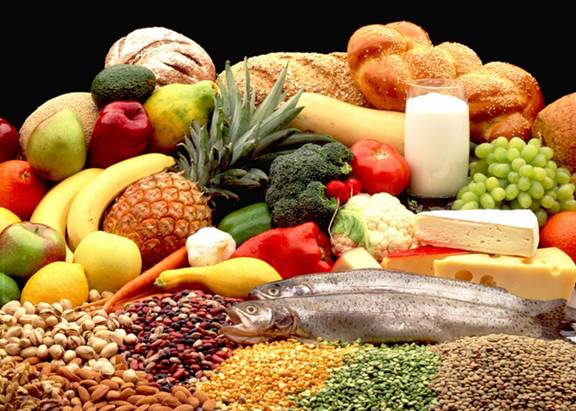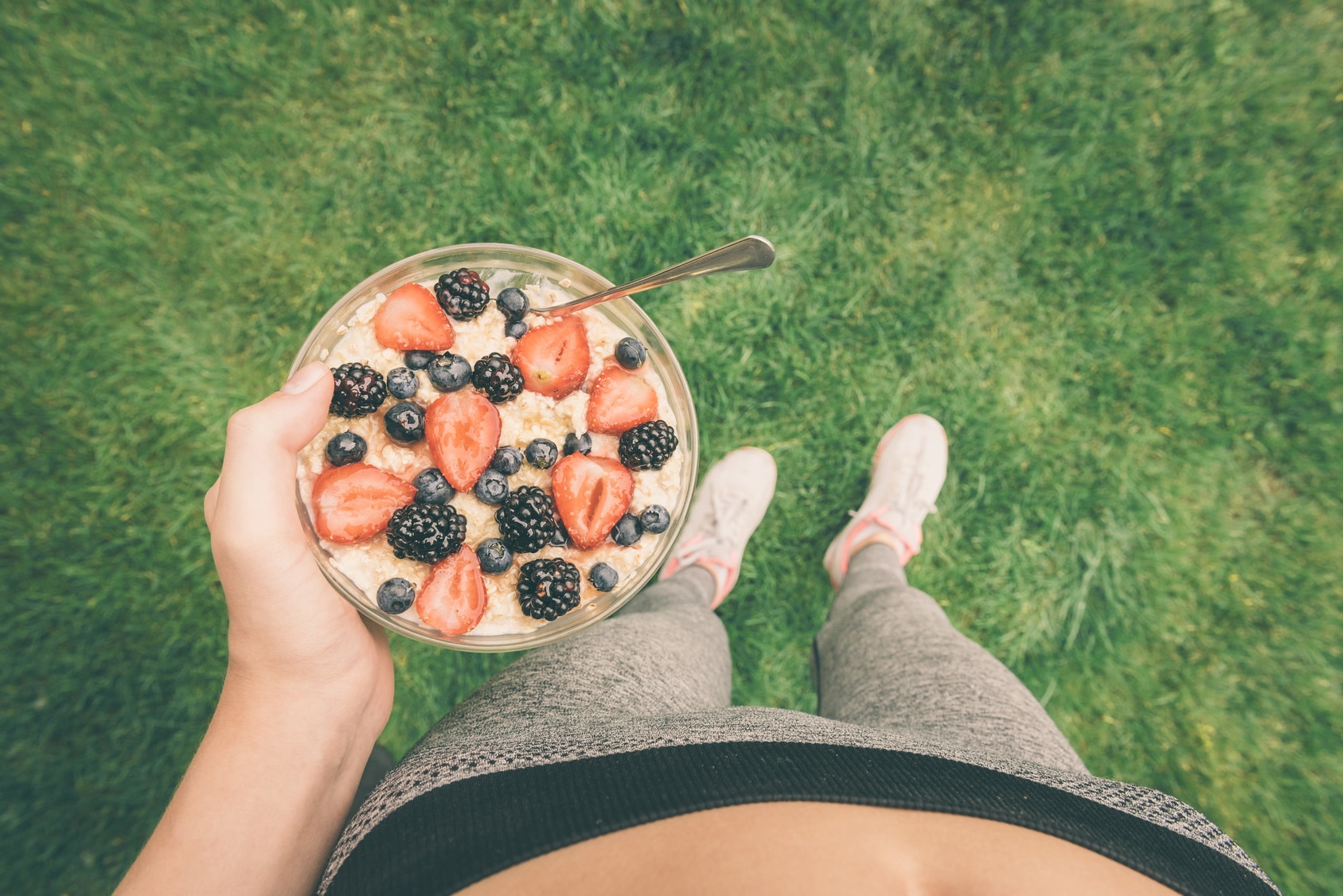
As a runner, chances you already know what you should eat and when you should eat it.
But that’s easier said than done—the real trick is really about turning the theory into practice.
Nonetheless, fret no more.
Today I’m gonna share with you some of my best diet advice. This, hopefully, will help you get your head around the ins and outs of proper running nutrition so you could run your best and reach your full running potential.
So you are excited? Then here we go…
Have a Plan
Failing to plan is planning to fail, as the saying goes. And this classic management maxim is so relevant and important in the world of running.
Here is why…
When it comes to the ideal meal-timing, the better you plan, the better off you are going to be.
Therefore, to take the guess work out of your eating choices, make sure to plan the snacks and meals you are going to eat before and after the run.
And if you don’t know how, then use these guidelines as your mapping tool.
So find out what works the best for you and stick to it.
The following eating strategies will help you coordinate your meals with your running schedule, based on the time of day you run.

Usually, for short easy runs, you won’t need to worry about energy intake.
On the other hand, if you are planning to run for more than an hour, or go for a hard interval session, then you should be doing your best to maximize your eating choices. (Check my other post: The 3 Keys to Pre- and Post-Run Eating for Runners)
The amount of fuel you need depends on how long and/or hard you are going to run.
Here are a few pointers:
1. Morning Runners
I’m a morning runner, and truth be told, I wasn’t born a morning person. And diet was one of those things that took me quit a bit of time to figure out.
Here is what you need to know:
If you have an easy run on schedule—3 miles or less—you may not need to eat before you run.
In fact, You can always run on an empty stomach for easy runs—especially if you want to speed up weight loss, or trying to train in a fasted state to improve specific fitness gains.
However, if a quality workout is on schedule, such as a long run or an intense speedwork session, you need to take in calories to power your run.
If you don’t fuel properly, you will likely feel tired, sluggish and nauseated during your workouts.
As a general guideline, aim for, at least, 400- to 500-calorie breakfast to fuel your energy tanks; this might be enough to provide enough fuel for your hard workouts.
Nevertheless, if you are just like the rest of us and don’t have the time for a full meal in the morning, then you have two options here:
1st Option
The pre-morning-run meal can be your last night meal. A proper dinner (or a small meal before bed) can replenish your energy tanks, making sure that you’ve enough glycogen stores for your morning run.
So what to eat?
Think quality instead of quantity. Go for carb-rich, medium protein, low-fiber and easy to digest dinner. A heavy dinner will only compromise your sleep.
2nd option
Or wake up earlier than normal to eat a high-carb, low fiber, and fast-to-digest breakfast, at least, a half an hour before you head out.
What to eat
Opt for high carb foods that are moderate in protein, low in fat and fiber. Aim for 200 to 400 calories, which is enough to fuel your run without making you feel sluggish.
Also, make sure also to drink plenty of water as soon as you step out of bed. After an eight hours slump, risks of dehydration run high.
Steer clear of foods that are high in fat and fiber because they will weigh you down.
High fiber foods also take longer to digest and can cause stomach upset.
My favorite is a banana with peanut butter since the former is high on carbs while the latter is rich in protein and fats. Or you can try whole grains with milk.
Carbs will provide the energy punch while the protein and just a bit of fat help it last.
Here are some pre-run ideas for your morning runs:
- Honey on toast
- Fruit and yogurt smoothie
- One slice of toast with almond butter
- Peanut butter banana smoothie
- Small box of raisins
- Two slices of toast and a piece of fruit
- Avocado oats with smoked egg
Post-Run Breakfast
After completing your run, eat something as soon as you finish— during what’s known as the recovery window.
Post-run eating is king.
Post-run eating is key for replenishing your energy tanks for the rest of the day and speeding up recovery for your upcoming workout.
As a result, make sure to never skip breakfast—even if you are running a busy life schedule.
I can’t have my breakfast without eggs. I love them so much that most of the breakfast ideas are based on them.
So, please, make sure to eat them on a regular basis. For more egg-based breakfast ideas, check this excellent link
Here are some breakfast ideas.
- Scrambled eggs
- Avocado toast with egg
- Hardboiled egg sandwich
- Scrambled egg with low-fat cheese
- Eggs with spinach
- Zapped scrambled eggs with veggies
- Tomato breakfast sandwich
- Fresh Smoothies
- Fruit and Yogurt Smoothie
- Unsweetened, instant oatmeal with fresh fruit
2. Midday Runners
For the lunchtime crowd runners, eating choices may differ, but the overall strategy remains the same.
And for most lunchtime runners out there, hunger is a significant obstacle. It’s something many a runner struggles with.
In my experience, here is why hunger can get the best of you during lunchtime power run:
If you had your breakfast, let’s say, at 7 am, then you have gone for more than five hours without food. By noon, your fuel from breakfast has been already depleted, and your blood sugar levels may start to plunge, leaving you feeling fatigued and sluggish.
So no wonder that hunger pangs can hit you the hardest during this time.
What should you do in this situation?
The key to running your best at lunchtime lies with the quality of your breakfast or the quality of your last snack.
As a result, should you have a “bigger” breakfast or solely rely on snacks?
In my experience, what worked the best for me was putting in place a healthy snacking strategy. It’s easier that way.
Plus, I no longer have to fret about having that perfect breakfast that will keep my energy levels in tip-top shape for the entire morning.
Just bear in mind that snacking right is all about smart planning.
If you plan your snacks thoroughly, then you will not fall victim to the other side of snacking, which is unhealthy snacking, and mindless eating.
Bring a light pre-run snack to work.
Have your pre-midday run snacks one to two hours before you head out of the door. Choose something within the range of 200 to 400 calories, depending of course on the intensity of your run, your body weight, you training goals, what you had for breakfast and your own personal preferences.
For the snack content, rules don’t change much. Go for snacks that are rich in carbs, moderate in protein and low in fat and fiber.
Here are some mid-morning snacks.
- Low-fat cottage cheese and raw vegetables
- Fruits with almonds and mixed seeds
- A banana a low fat yogurt
- Seeds and low-fat yogurt
- Low-fat energy bar
- Vegetable crudités with hummus
- Low-fat yogurt with an apple
Post-Run Lunch
Make lunch your main meal of the day.
Make high-quality proteins, such as chicken, fish, and tofu a part and parcel of your lunch, along with a large salad and some fruit as well.
After a run, you would need water and nutrients to recover and fuel your body for the rest of the working day. A salad must make the bulk of your lunch.
As a result, make sure to throw in plenty of lettuce, asparagus, and tomatoes.
Most vegetables are 90 percent water, fiber, and protein, with little carbs.
They are also filled with nutrients, antioxidants and other valuable vitamins and minerals.
Here are nine healthy post-run lunch ideas to pick and choose from:
- A large salad with a portion of protein, such as chicken, egg, fish, hummus, beans and lentils.
- A salad with fish, wild rice and a serving of fruit
- A salad and chicken Panini
- Canned salmon dressed up with grapefruit, avocados, onions and lettuce.
- Stuffed Sweet Potato
- Grilled Chicken and Cheese Sandwich
- Egg, Tomato, and Avocado Sandwich
- Lentil Salad with Poached Eggs
- Tomato, Arugula, and Pancetta Sandwiches
3. Evening Runners
After a taxing day at the office, there is nothing like an evening run to get rid of the stress and feel anew.
Nevertheless, most people don’t feel like heading out of the door for a run—especially when fatigue and hunger set in (and after long stressful hours).
Plus, if you are too hungry after an evening run, chances you are going to overeat on dinner, thereby going to bed with a full stomach, which is bad for sleep and overall health.
Note: Mindless eating—whether it’s unhealthy snacking or eating on the go—are not the most efficient nutrition decisions you will ever make.

Everybody is Different
Don’t get me wrong here. The ideal meal-timing formula is a matter of personal preference. Everybody is different and responds differently to different types of food and eating-running schedules. No suit fits all.
Personally, I can’t run within 30 minutes of eating almost anything. I know of other runners who have no stomach issue, and this always bothered me. But the realization that everyone is different was a real eye opener for me.
The key word is EXPERIMENT. That’s why you have to do the work and find what works the best for you in terms of performance, training enjoyment and personal preference.
If you hit the running track after work, then make sure to eat a small snack before running, such as a banana with all-natural peanut butter, or any of the snacks option above.
Of course, you can always choose your own healthy snacks. No suit fits all. The snack Ideas are merely suggestions.
Post-Run Dinner
For post-run dinner, moderation should be your main focus.
Many runners are ravenous after an evening run. Nonetheless, it’s possible to tame the hunger if you stick to the healthy eating guidelines I shared with you. Keep timing your snacks right, have a healthy breakfast and lunch, etc., and you’ll be on the right path.
Eat light before you turn off the lights
During the nighttime, it’s important that you eat healthy and light—especially if you are serious about making the most out of your bedtime.
A small snack after a run will help you recover while help you eat less during dinner, helping you avert sleep problems and gastrointestinal stress.
Dinner is also the time to think about your morning run—if you have one scheduled. Eat for performance and don’t chew on empty calories.
Here are 11 healthy dinner ideas for your eating pleasure:
- Lentils with Roasted Beets and Carrots
- Penne with Chicken and Asparagus
- Cheesy Stuffed Tomatoes
- Spicy Lemon Trout
- Light Spinach Pesto
- Mediterranean Spinach and Pasta
- Chicken and Couscous Salad
- Baked Salmon with Avocado
- Eggs and Sweet Potatoes
- Sweet & Savory Grilled Chicken
- Seared Steak with Onion & Blue Cheese Sauce
Conclusion
Here you have it. My hope is that you take what you’ve learned today and start applying it in your life.
So please take action and don’t wait for the perfect moment. It will never come.
Feel free to leave your comments below.
Thank you for reading my post.
Cheers
Original article and pictures take www.runnersblueprint.com site
Комментариев нет:
Отправить комментарий